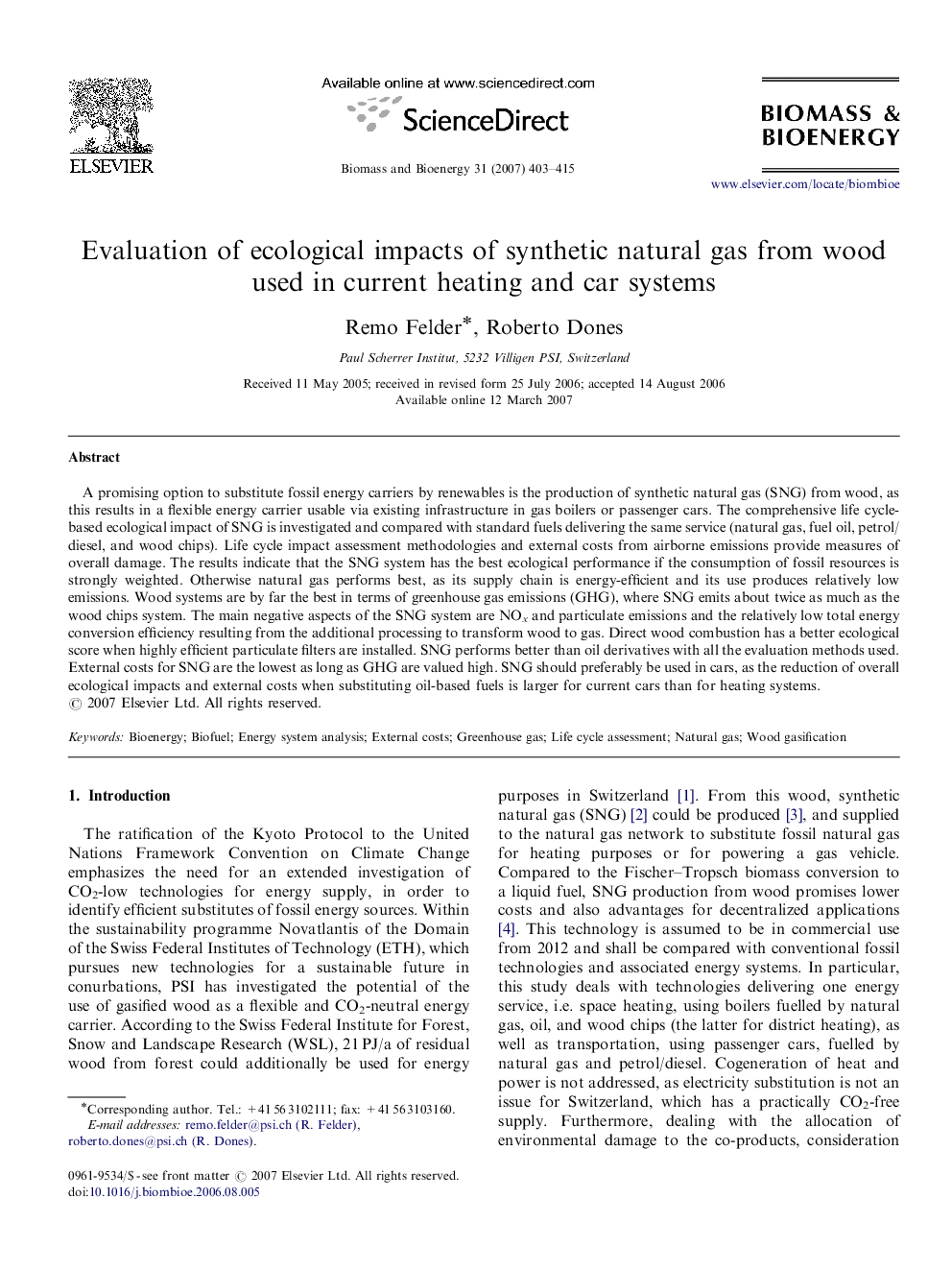| Article ID | Journal | Published Year | Pages | File Type |
|---|---|---|---|---|
| 678653 | Biomass and Bioenergy | 2007 | 13 Pages |
A promising option to substitute fossil energy carriers by renewables is the production of synthetic natural gas (SNG) from wood, as this results in a flexible energy carrier usable via existing infrastructure in gas boilers or passenger cars. The comprehensive life cycle-based ecological impact of SNG is investigated and compared with standard fuels delivering the same service (natural gas, fuel oil, petrol/diesel, and wood chips). Life cycle impact assessment methodologies and external costs from airborne emissions provide measures of overall damage. The results indicate that the SNG system has the best ecological performance if the consumption of fossil resources is strongly weighted. Otherwise natural gas performs best, as its supply chain is energy-efficient and its use produces relatively low emissions. Wood systems are by far the best in terms of greenhouse gas emissions (GHG), where SNG emits about twice as much as the wood chips system. The main negative aspects of the SNG system are NOx and particulate emissions and the relatively low total energy conversion efficiency resulting from the additional processing to transform wood to gas. Direct wood combustion has a better ecological score when highly efficient particulate filters are installed. SNG performs better than oil derivatives with all the evaluation methods used. External costs for SNG are the lowest as long as GHG are valued high. SNG should preferably be used in cars, as the reduction of overall ecological impacts and external costs when substituting oil-based fuels is larger for current cars than for heating systems.
